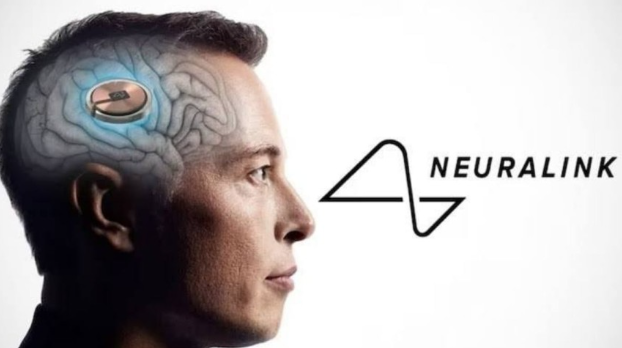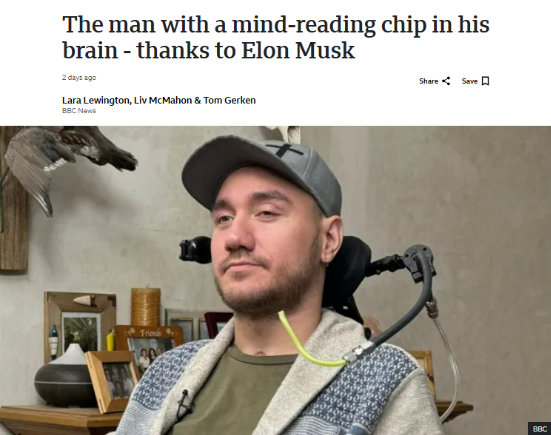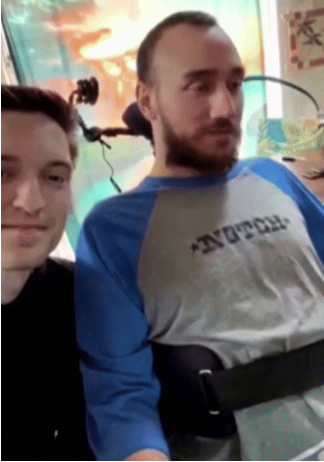
It has been confirmed that a patient who underwent brain implant surgery for Tesla CEO Elon Musk’s brain neuroscience startup Neuralink has been enjoying various games such as chess just by thinking about it for a year. This is the first case of a patient who received a computer chip developed by Neuralink into his brain.
The BBC reported on the recent situation of Noland Arbo, the first subject of Neuralink’s procedure on Sunday. Arbo received Neuralink’s “Telepathy,” a brain-computer interface (BCI) device, in January last year, eight years after a diving accident paralyzed all of his body below his shoulder. This is Neuralink’s first brain implant.

In March the same year, Neuralink released a video of Arbo playing chess by manipulating the mouse cursor on a laptop screen while keeping his hands and feet intact in a wheelchair. By implanting a BCCI device into the skull, the device allows the user to manipulate the computer by exchanging signals with nerve cells (neurons) through fine electrodes.
Arbo said his chip manipulation ability improved after one year. “I grew up playing games that I had to give up after the accident. Now I beat my friends with games. The impossible has happened.” In the future, he said he hopes the device will allow him to operate wheelchairs and humanoid robots.
Recalling the first time he decided to undergo surgery, Arbo said, “Whether it goes well or not, I could have helped you. If everything goes well, I will be helpful as a participant in Neuralink, and even if something terrible happened, I would have learned something from it.” He also said of Musk, who talked before and after the surgery, “I think he was as happy as I was.”

Not everything was smooth. Once, the chip was disconnected from the brain, making it impossible to operate the computer. “I was really upset,” Arbo said. “I didn’t know if I could use Neuralink again.”
The problem was later solved by Neuralink adjusting its software, but it was an example of concerns about technical limitations that experts have repeatedly raised, the Guardian noted.
In the case of Arvo, since he agreed to participate in Neuralink’s experiment for six years, his life after that is also surrounded by uncertainty. Fundamentally, there are concerns that this technology may infringe on human intimate privacy.
Annil Seth, a professor of neuroscience at the University of Sussex, told the BBC, “Extracting brain activity means that not only our actions, but also our thoughts, beliefs, and emotions are accessible.”
JULIE KIM
US ASIA JOURNAL



